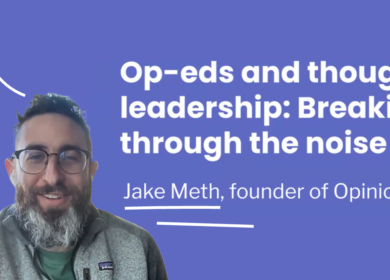By Scott VanSickle
The Hoffman Agency, San Jose
Divorces can be messy.
So when Kara Swisher and Walt Mossberg broke away from Dow Jones to form Re/code, we were understandably concerned.
- Would Re/code have as much influence and success outside of the Dow Jones ecosystem as AllThingD had achieved?
- Would the editorial focus change under the Re/code brand?
- What is the Re/code team planning – not their editorial plans, but events and other initiatives?
When PRSA hosted Re/code’s San Francisco editorial team, we had to be there.
And we have to admit that we love hearing Kara Swisher dish on the tech industry and Dow Jones. You just never know what she’ll say next.
Kara was joined by Joe Brown, (a new hire as managing editor who also helped get Kara her first job at The Washington Post). The panel also included senior editors Ina Fried, Liz Gannes and James Temple, and associate editors Eric Johnson and Nellie Bowles.
Face framed in aviator sunglasses, Kara kicked off the discussion with insights into why she and co-CEO Walt Mossberg broke up with Dow Jones.
It boiled down to one core issue – they wanted to own the brand and everything associated with it – and they wanted their editorial team to have an ownership share in it.
Kara and Walt also want to do “more” of everything, plus video, podcasting, and maybe even launch a TV show, especially since NBC now has a minority ownership stake.
Part of that “more” plan included hiring new staff, beginning with Joe Brown as deputy managing editor. Joe’s background is “lifestyle stories” – he’ll manage features and serve as the chief gatekeeper for guest posts and contributed content.
A comment that lifestyle stories are “airy fairy” sparked a fiery retort from Joe, who believes newspaper editors have historically been blind to what readers want, discounting any content that was not “hard news” or related to politics. He aims to elevate human interest content at Re/code to attract an audience seeking the kind of stories we all want to read – and urged anyone pitching a guest post to make sure it’s something “you would want to read – not just something your boss wants.”
Joe and Kara weren’t the only panelists with opinions. Others gave their take on the tech industry, what’s wrong with journalism today, why Silicon Valley is clueless about diversity, and why PR pros are great … except, as Kara said, for “stupid people, who are bad no matter what they do.”
Ina Fried highlighted her distaste for “commodity journalism,” product and funding news that dominates much of the tech media today. She believes people are more interested in the human stories that help us understand where the tech industry is heading, stories like the legal battle between Apple and Samsung, and Google and Oracle. That’s why she’d spend days in courtrooms watching the giants argue about patents and intellectual property.
Liz Gannes, who covers technology trends, highlighted crowd funding, the “sharing” economy, and the Internet of Things as topics that grab her attention – as long as the stories have a different take.
James Temple, charged with covering healthcare and science, admitted that he needs to filter his beat somewhat, because it’s too broad. Right now, he’s trying to narrow science to anything with an outsized dependence on technology, such as using the cloud to find a cure for cancer.
Gaming editor Eric Johnson noted that he is more interested in the business and culture of gaming – not so much in the latest releases.
Nellie Bowles explained that she’s trying to define her role in covering Silicon Valley culture, which centers on tech industry parties. Never one for the mundane, Kara elaborated, describing a recent assignment for Nellie to visit a bar where a woman had been assaulted for wearing Google Glass to see if she would also be a target.
So what can we expect from Re/code in the future?
Kara and her team plan to take risks, cover people from areas not known for tech innovation, and spotlight controversial issues in the technology industry and startup culture.
Whether they achieve these lofty goals, one thing is certain: It won’t be a boring ride.


